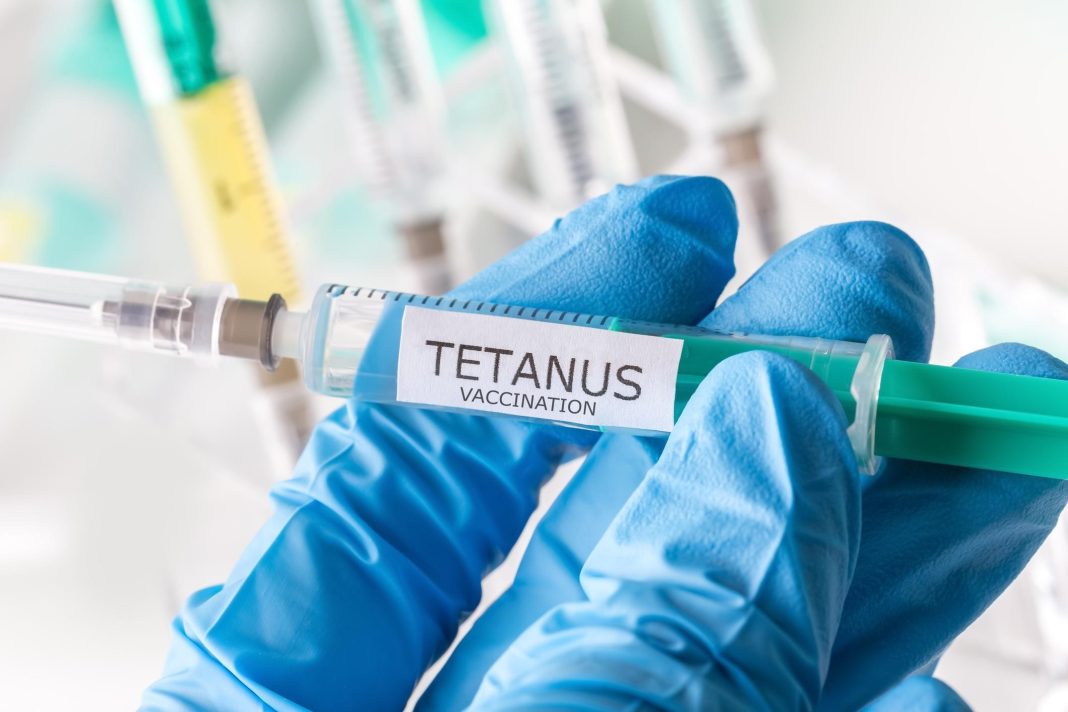For nearly a month, Karachi has been experiencing a severe shortage of tetanus injections, causing many hospitals to deny the medication to injured patients, as reported on Sunday.
Doctors from various private and public hospitals informed Dawn that the medication shortage has persisted for almost a month and that tetanus injections are available on the black market at exorbitant prices.
“Yes, there’s been a severe shortage of the medication for a month. However, we are managing this issue internally using our own resources,” an official from Indus Hospital stated.
“Numerous people in Karachi suffer injuries daily and are at serious risk of health complications if not given anti-tetanus medication,” explained Pakistan Medical Association-Centre Secretary General Dr. Abdul Ghafoor Shoro, noting that severe tetanus complications can be life-threatening.
Doctors reported that tetanus, commonly known as lockjaw, is a serious nervous system disease caused by toxin-producing bacteria, leading to muscle contractions, particularly in the jaw and neck. Severe tetanus complications can be life-threatening, and immunization is the only effective prevention.
Health complications from tetanus include vocal cord spasms, broken bones from severe muscle spasms, breathing problems, high blood pressure, and blood clots in the lungs, according to the doctors.
Nationwide Shortage
Sources revealed that the shortage extends beyond Karachi and affects the entire country. In response, the Punjab government plans to purchase 1.5 million doses of the medication through a pharmaceutical company, with the imported consignment arriving soon.
“It’s not just tetanus; many medicines, including those for diabetes, have been in short supply for over a month. We notified the Drug Regulatory Authority of Pakistan (DRAP) in writing over a month ago, inquiring whether the shortage was due to raw material scarcity or import issues. Unfortunately, there was no response or action,” Dr. Shoro of PMA stated.
He suggested that medicine shortages are often artificially created to raise prices, recalling a recent severe shortage of the rabies vaccine.
“In both cases, the poor suffer silently. Anti-tetanus medication is also crucial in antenatal care, where expectant mothers receive it to protect themselves and their babies from neonatal tetanus,” he explained.
At Jinnah Postgraduate Medical Centre, officials reported a serious shortage of tetanus immunoglobulin but no shortage of anti-tetanus serum. “The serum is preventive, while immunoglobulin is needed to build passive immunity.”
Officials at Dr. Ruth Pfau Civil Hospital Karachi highlighted the need for a health department advisory on anti-tetanus medication use.
“There is a shortage of anti-tetanus serum but not of tetanus toxoid. Both have preventive roles, but the serum carries several risks. Hence, it’s better to use tetanus toxoid, which is safe and globally recommended,” a senior CHK doctor said, adding that most Pakistani hospitals use anti-tetanus serum made from equine blood.




